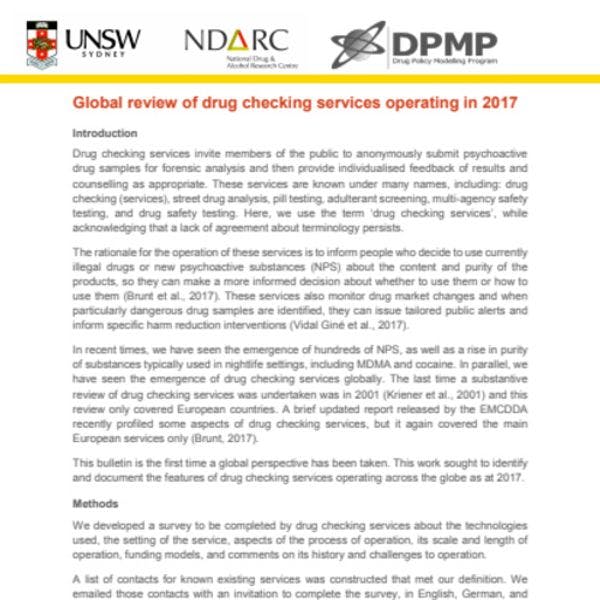Revue mondiale des services de vérification des drogues en opération en 2017
Le NDARC offre une vue d'ensemble sur les traits communs de ces services et souligne des défis pratiques et de recherche. Pour en savoir plus, en Anglais, veuillez lire les informations ci-dessous.
Drug checking services invite members of the public to anonymously submit psychoactive drug samples for forensic analysis and then provide individualised feedback of results and counselling as appropriate. These services are known under many names, including: drug checking (services), street drug analysis, pill testing, adulterant screening, multi-agency safety testing, and drug safety testing. Here, we use the term ‘drug checking services’, while acknowledging that a lack of agreement about terminology persists.
The rationale for the operation of these services is to inform people who decide to use currently illegal drugs or new psychoactive substances (NPS) about the content and purity of the products, so they can make a more informed decision about whether to use them or how to use them (Brunt et al., 2017). These services also monitor drug market changes and when particularly dangerous drug samples are identified, they can issue tailored public alerts and inform specific harm reduction interventions (Vidal Giné et al., 2017).
In recent times, we have seen the emergence of hundreds of NPS, as well as a rise in purity of substances typically used in nightlife settings, including MDMA and cocaine. In parallel, we have seen the emergence of drug checking services globally. The last time a substantive review of drug checking services was undertaken was in 2001 (Kriener et al., 2001) and this review only covered European countries. A brief updated report released by the EMCDDA recently profiled some aspects of drug checking services, but it again covered the main European services only (Brunt, 2017).
This bulletin is the first time a global perspective has been taken. This work sought to identify and document the features of drug checking services operating across the globe as at 2017.
